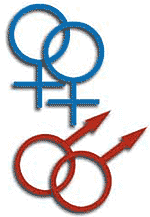At some level it is almost absurd that pornography is banned in Singapore. Any self-respecting port would measure itself by the number of banks, bars, and brothels; the entire premise of the island nation state is about commodification and trade.
However, once we take into consideration the fact that no one likes to air their dirty laundry in public, this begins to make a little more sense. After all, this is the reason why the state refuses to acknowledge a well-known fact that Singapore has a vibrant gay community in Asia.
It is not that sodomy is criminalised. Instead, homosexuality has shown to the state that it could adhere to the government’s principle of surplus value-in the form of financial benefits from the power of the ‘pink dollar’. So it matters little whether sexual relations produce another person or not.
Even though prostitution is legal in Singapore, it is confined to designated areas. However, having these zones of exclusion allows the state to maintain the illusion that commodification of sex, and by extension humans, only occurs in specific areas, while the rest of the nation hold on to the belief that they are different.
The prohibition of pornography functions in exactly the same way, for it exposes too clearly how the state functions. All pornography are virtually the same; the only difference would be the actors. Each porn flick is an echo of Shakespeare’s “all the world’s a stage/ all the men and women merely players”.

It reminds us of the fact that everyone is exchangeable. And there is nothing worse to a state that is attempting to create a national identity to have the illusion that each person is unique and has a sense of belonging. In fact, regardless of the size and age of any nation state, it cannot afford to have its basic illusory premises exposed.
Politics of religion
On May 2, 2009 an illusion was tested and that of the status of democracy in Singapore. A group of new members of the Association of Women for Action and Research (Aware) launched a coup during the association’s elections at the Extraordinary General Meeting on March 28, 2009. The controversial power struggle saw a group led by Josie Lau grabbed nine of 12 seats in the executive committee. Six of those women-including Josie Lau, who became president but later booted out-are members of the Protestant congregation of the Church of Our Saviour, known to be vocally homophobic.
This, of course, led to rampant rumours of collusion and power struggle in order to push the religious envelope onto an otherwise secular women’s organisation in Singapore. These events led to an Extraordinary General Meeting on May 2, where Josie Lau- led group stepped down after an over-whelming vote of no-confidence from Aware’s members.
The question of which group is better suited to lead Aware and to champion women’s issues in Singapore is of little concern to me. The more interesting question is: ‘Why has this event garnered so much media coverage in the state?’ After all, petty political struggles are commonplace. Moreover, Singapore is not particularly well-known for issues of human rights, let alone women’s rights.

Beyond a few statements from government officials as to how this internal power dispute must remain within the boundaries of civility, the state has remained completely divorced from the issue. Certainly unusual for a government that is hell bent of maintaining the illusion of a conflict-free state for reasons of economic stability.
Undoing paternalism?
A generous reading of the state reaction would be that the government is finally shifting away from its traditional paternalistic stance, where it micro-manages every aspect of society. One could also contend that this is part of the re-branding efforts of the incumbent party; it is increasingly difficult to win elections if one is seen to be overbearing and autocratic.
However, one might also consider this possibility: The incumbent is silent on the power struggle at Aware as it reinforces its underlying approach to democracy. To deal with opposition, incumbents must safeguard itself against hostile takeovers that free elections enjoy.
One must never forget that Adolf Hitler and the National Socialist German Worker’s Party came to power through the electoral system. The nature of democracy is that of majoritarian rule.
Hence, anyone who can garner enough support, regardless of their political leanings can come to power. By extension, this means that democracy is inherently open to non-democracy.
In this sense, the power coup by Christian fundamentalists at Aware demonstrates this better than any political rhetoric could. The fact that the ‘old guard’ had resorted to the exact same strategy- gathering its own support to oust the incumbent party on May 2-only serves to reinforce the majoritarian rule.
For in order to maintain the illusion, one has to keep a proper distance from it. Sometimes this is the distance of silence-by not telling everyone that they were right, the incumbent party in Singapore will give everyone the space to come to that conclusion themselves; precisely by letting the women of Aware indulge in their cat-fight.
JEREMY FERNANDO is a teaching fellow at the English division, School of Humanities and Social Sciences, Nanyang Technological University. He is also the author of 'Reflections of (T)error' and is based in Singapore.

